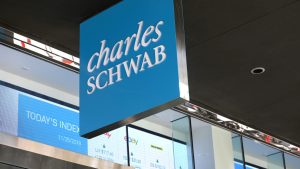Share this page:
Zog Energy is no longer trading, which is unwelcome news for the energy firm’s 11,700 UK customers. But what happens when an energy firm goes bust? And is your power supply safe? Let’s take a look.
The Zog Energy collapse
Zog Energy stopped trading on 1 December 2021. So if you were a Zog customer, the firm isn’t your supplier anymore. Don’t worry, though – here’s what happens next.
- First, Ofgem, the UK’s energy regulator, will find a new supplier for all Zog Energy customers.
- In the meantime, you won’t lose your energy supply.
- What’s more, you’ll keep your credit balance, if you have one.
So, although it’s unhappy news, customers won’t notice any real changes right now.
How many energy suppliers have gone bust in 2021?
Unfortunately, Zog Energy is far from the only firm to go under this year. So far, we’ve lost over 20 energy firms in 2021, including:
- PFP Energy
- Utility Point
- Avro Energy
- Bulb
Why are we losing so many energy suppliers, though? Well, we can blame stubbornly high wholesale gas prices, the energy price cap and price promises.
In short, it now costs more for suppliers to buy gas than they can charge customers due to price promises and fixed deals. Since suppliers can’t pass on the extra charges to consumers, they’re running at a loss.
While some larger energy firms can weather the storm and stay afloat, smaller firms like Zog Energy are struggling, which is why we’re losing so many in a short space of time.
What should Zog Energy customers do now?
If you’re a Zog Energy customer, there’s no need to do anything. You’ll still have an energy supply, for one thing, so there’s no need to worry about losing power.
That said, it could take a few weeks for Ofgem to find a new supplier, so there are a few things you might do to prepare.
- Take a picture of your meter reading. You’re less likely to be overcharged if you can provide the most up-to-date reading available.
- Make sure you’ve got a copy of your most recent utility bill. Again, the more information you can give your new supplier, the easier it’ll be to ensure you’re on the right tariff for your needs.
- If you pay by direct debit, there’s no need to cancel your payments just yet. You can wait until you set up an account with your new supplier.
Once you have a new energy provider in place, they’ll contact you to explain what happens next.
What if you’re unhappy with your new supplier?
If you’re not happy with your new supplier, don’t worry. You’re not obliged to stay with them if you’re unhappy with what’s on offer.
- If you’re happy with the supplier but not the tariff, ask them if they have other deals available.
- If you don’t want to stay with the supplier, you can always shop around for other tariffs elsewhere.
Just remember that since energy prices are high right now, it might be hard to find a competitive deal by shopping around. However, there’s no harm in exploring your options.
Takeaway
The Zog Energy collapse is alarming news for all consumers. However, the good news is that customers won’t lose power, so there’s no need to panic about the electricity supply.
Here’s a final tip to bear in mind before you go: switching tariffs isn’t the only way to save money on energy. You can also reduce your energy bills by making simple changes like using the heating less or turning the thermostat down.
Was this article helpful?
YesNo
About the author
Jennifer is a writer specialising in debt, personal banking, and small business finance.
Share this page:
Some offers on The Motley Fool UK site are from our partners — it’s how we make money and keep this site going. But does that impact our ratings? Nope. Our commitment is to you. If a product isn’t any good, our rating will reflect that, or we won’t list it at all. Also, while we aim to feature the best products available, we do not review every product on the market. Learn more here. The statements above are The Motley Fool’s alone and have not been provided or endorsed by bank advertisers. John Mackey, CEO of Whole Foods Market, an Amazon subsidiary, is a member of The Motley Fool’s board of directors. The Motley Fool UK has recommended Barclays, Hargreaves Lansdown, HSBC Holdings, Lloyds Banking Group, Mastercard, and Tesco.
This post was originally published on Motley Fool




